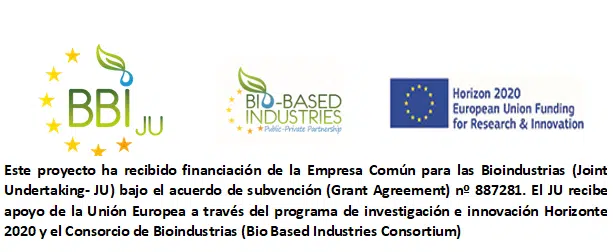DOMCA is participating in the European project BIOVEXO aimed at developing innovative biopesticides compatible with organic agriculture to combat both the pathogen and the vector that spreads the bacterium in an integrated pest management strategy.
The problem of Xylella
Xylella fastidiosa is a bacterium that can lead to the decimation of over 70% of olive production in the European Union and significantly reduce almond and fruit tree plantations. In fact, the EFSA (European Food Safety Authority) considers it one of the major threats to European agriculture.
Xylella fastidiosa is transmitted by insect vectors that feed on xylem sap. The bacterium colonizes the xylem vessels of the plant, blocking the absorption of essential nutrients and water for the plant’s health. Once this occurs, severe symptoms of Xylella become evident, often leading to the death of the plant.
The spread of Xylella fastidiosa has rapidly increased in Southern Europe, causing damage and destruction to entire olive and almond groves. One of the most affected regions in Europe is Apulia, in southern Italy, where olive production has decreased by 65% to 80%. Centuries-old olive trees with more than 400 years of history have been destroyed, and it is estimated that over 100,000 jobs have been lost.
Other countries affected by this plague include Spain, Portugal, and France. In Spain, the disease is present in the Balearic islands, primarily affecting olive and almond crops, as well as in the Valencian Community, where hundreds of hectares of almond trees are affected.
To date, there is no solution on the market to combat the devastation caused by Xylella.
Learn more about the Xylella fastidiosa bacterium on our blog.
Innovative biopesticides Against Xylella
DOMCA will develop solutions based on plant extracts, making use of byproducts from the food industry in a circular economy strategy, as well as biocontrol strains effective against other pathogens. In this case, DOMCA is developing biopesticides compatible with organic agriculture, which are based on plant extracts and microorganisms. In an initial stage, the in vitro effectiveness of these biopesticides against the bacterium has been tested. Subsequently, they will be tested in various formulations for small and large-scale trials in affected fields.
Project Structure and partners
The project is structured into 8 work packages:
- Biopesticides-X for the control of Xylella bacteria
- Biopesticides-V for the control of the vector spreading Xylella
- Formulation and scaling of biopesticides
- Large-scale validation and integrated control strategies
- Mode of action of biopesticides against target organisms
- Sustainability and toxicity of the developed products
- Dissemination, exploitation, and communication
- Project management
DOMCA is responsible for coordinating work packages 1 and 3. This includes the work related to the development of biopesticides with antagonistic capabilities against the bacteria, small-scale testing, formulation development, and scaling and production.
On the other hand, the Belgian company Globachem, which specializes in developing biopesticides against vector insects, is responsible for coordinating work packages 2 and 6. CNR Research Center coordinates the large-scale trials and integrated control strategy included in Work Package 4. AIT, an Austrian research center, leads work package 5, which focuses on the mode of action of the developed biopesticides. The consulting firm RTDS, based in Vienna, is responsible for managing the cross-cutting work packages related to result dissemination and project management.
The project also includes other partners like: University of Sevilla (responsible for toxicology test of the solutions), CRSFA, ASAJA and AIMERIT (responsible for field trials on olive and almond trees) and the University of Antweerp (Life Cycle Assessment).
Bio-Based Industries
BIOVEXO is an Innovation Action (IA) funded under the BBI (Bio-Based Industries) call of Horizon 2020, with a budget of €8,025,112.41, of which €6,612,227.48 is provided by European funding.
The Bio-Based Industries Joint Undertaking (BBI JU), now referred to as CBE-JU (Circular Bio-Based Industries Joint Undertaking), is an initiative within the Horizon 2020 framework program (currently Horizon Europe). It constitutes a Public-Private Partnership between the European Union (EU) and the Bio-Based Industries Consortium (BIC).
The overarching goal of BBI JU is to reduce Europe’s dependence on fossil fuels and develop a bioeconomy capable of creating new biological-origin products and value chains. The key to this lies in promoting new biorefineries that can transform renewable natural resources into bio-based products, materials, and fuels. All of this is aimed at mitigating the effects of climate change and transitioning the European economy into a more environmentally friendly one.
Dissemination actions
For those interested in obtaining more details about the BIOVEXO project and its fight against the Xylella pest, here are some useful sources:
Project website: BIOVEXO – Project website
Project blog: You can find additional information about the Xylella pest and the solutions being implemented on the BIOVEXO project blog.
Social media: To stay updated on the latest news and developments in the project, be sure to follow the social media channels related to BIOVEXO, where you can find up-to-date information about the ongoing work and everything related to Xylella fastidiosa.
If you have any questions or need specific information about the project or any other topic, please don’t hesitate to ask.
Vídeos del proyecto







